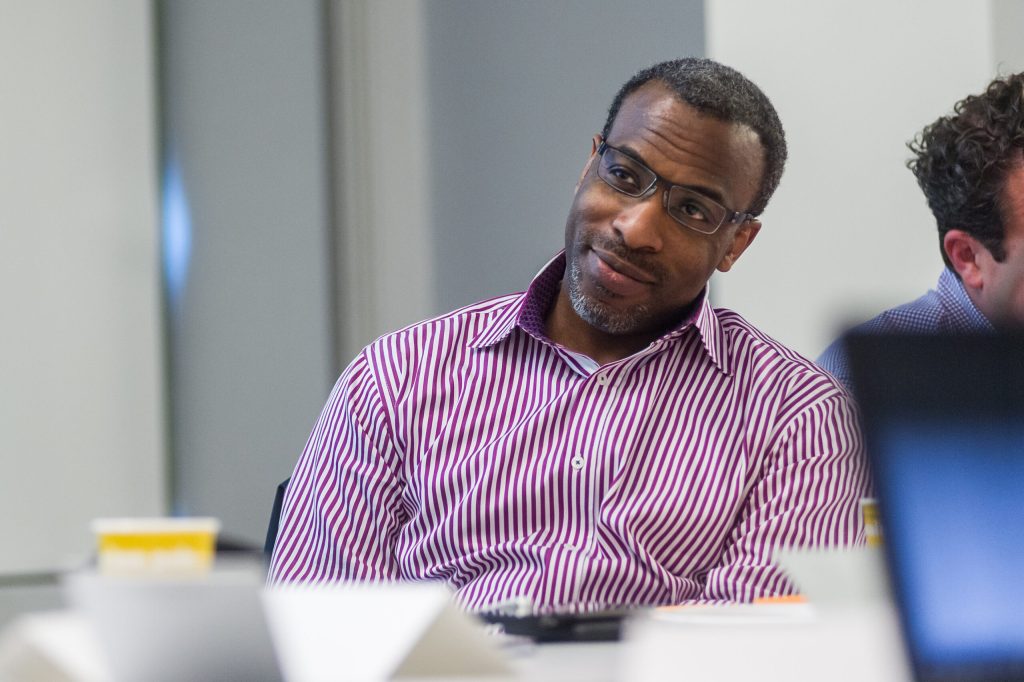Getting started on your board journey can feel overwhelming, especially if you are an executive on the early end of your career. The good news, according to Rapid7 CEO Corey Thomas, is that you don’t have to wait to get started.
Corey should know. In addition to his role at Rapid7, he serves on the boards of LPL Financial, Blue Cross Blue Shield of Massachusetts, Vanderbilt University, Cyber Threat Alliance, MassTLC, and more. He shares his insights and experiences on how to get started with members of MassTLC’s Board-Ready Bootcamp community.
Developing expertise and a broad network
When I coach people who are thinking about board work, I tell them to really think about how they are developing and mastering their expertise, and how are they building a broad network and making themselves helpful to lots of companies?
Nurturing, helping and supporting companies and organizations is a smart way to get your first board seat because, in doing so, you’re already known as someone that makes your network available, provides your expertise, dives in, and actually helps build something around you.
In my career, I have focused heavily on finding and developing relationships with people in both venture and private equity that I respect and trust. It’s a two-way relationship. I provide market expertise and knowledge to help them think through some of their acquisitions, and they provide perspective about what’s happening in the industry and globally.
For me, forming these relationships and demonstrating my expertise helped build the capacity for more board invitations. The key is having expertise in something that’s actually valued.
Getting started wherever you are in your career
If you’re very early in your board journey and you’re looking to get started, a successful strategy is to focus on building your expertise in a specific domain, finding ways to be helpful, and building a network in that specific area.
Real-world examples:
- We have a first-time board member at Rapid7 who is an expert in cybersecurity. Early on, we were looking for someone with this experience. This board member had made a name for herself as a frequent speaker and was well regarded in the cybersecurity industry. Her network and expertise made her stand out as an attractive candidate for this specific need on our board.
- This approach applied to me too, as I landed my first board seat for a private company. I had built a reputation and expertise around product commercialization and creating product-market fit. I spoke at conferences and worked with lots of venture firms helping them vet their ideas. This visibility and reputation led organically to being an advisor and then to being offered a board role.
Secrets for non-C-suite executives
If you are not already established in your career or in a C-suite role, it can be more challenging to get started as, in my experience, many board roles go to established or C-suite executives. While this may be the general rule, leaders who have not yet achieved this point in their careers should not be discouraged.
Two exceptions to the rule or alternative pathways for those earlier in their careers:
Building your network in the nonprofit ecosystem. There are many non-profit organizations that are seeking volunteer board members, so it is easier to get involved. Find an organization for which you believe in their mission, feel you can add value, and that has a strong board of directors. This is a great environment to learn how boards work and to demonstrate your expertise, professionalism, and willingness to help. The other directors likely sit on private and public company boards and, once they see you in action, may think of you when their other board are seeking new directors.
Working with earlier stage companies where your relationships or your expertise has a lot of value is another good avenue. Early-stage companies often choose their board members and advisors for their connections and functional expertise and may seek board members that can help with key organizational challenges. Like with non-profits, the other board members are likely well networked and can help you land another board seat.
Focus on developing (functional) expertise
The network is important but don’t forget the expertise. It doesn’t help if people know you but can’t see how you would help the board. Building expertise takes work, time, and networking. Functional expertise pockets are the sweet spot between what people are interested in right now (needs) and what you’re good at (domain expertise). There is a balance here.
Real-world examples:
- Rapid7 Chief People Officer Christina Luconi is clear about what her areas of interest and expertise are and focuses on something that people need and care about: how companies can scale and build leadership skills. She writes for VentureFizz, and she has built a brand over several years around how to scale organizations and cultures, so now she is sought out for that, and she’s invited to join boards, even though the Chief People Officer is not a typical board profile. She is an example of building her brand and expertise while being helpful in the community at the same time.
- I helped one of my friends from college who has a medical practice start thinking about her board journey. We focused on early-stage drug manufacturers who were working in the area where she has domain expertise. The expertise these drug manufacturers needed was not only how to build the drugs, but also how to sell them to people like my friend and her colleagues in medical practices. They need both domain expertise and connections to understand how that works.
Direct path to a public company board seat
If you look at macro trends, there has been a decrease in the number of public companies, and at the same time there has been an increase in the number of companies overall. This cycle oscillates between private and public companies, and there are often lots of companies that move back and forth between public and private.
If you’ve successfully navigated your way onto a private company board, the most straightforward way to land a public board seat is if that company is on a trajectory of going public. Leverage your network to be in the right place at the right time and actively select the right companies with the right trajectories. At the end of the day, it’s all about building your network and utilizing your connections strategically.
Looking for more board insights?
MassTLC’s award-winning Board-Ready Bootcamp was designed to improve board composition and governance. The bootcamp combines world-class experts with real-world practitioners and industry mentors to deliver a rich interactive and engaging experience for any leader on a board journey or board members seeking to up their game. The bootcamp is offered online in the spring and fall each year. Bootcamp graduates participate in both online and in-person alumni community gatherings.
Learn more about how you can serve your community as a member of a board and apply for the next cohort of Board Ready Bootcamp, here.



